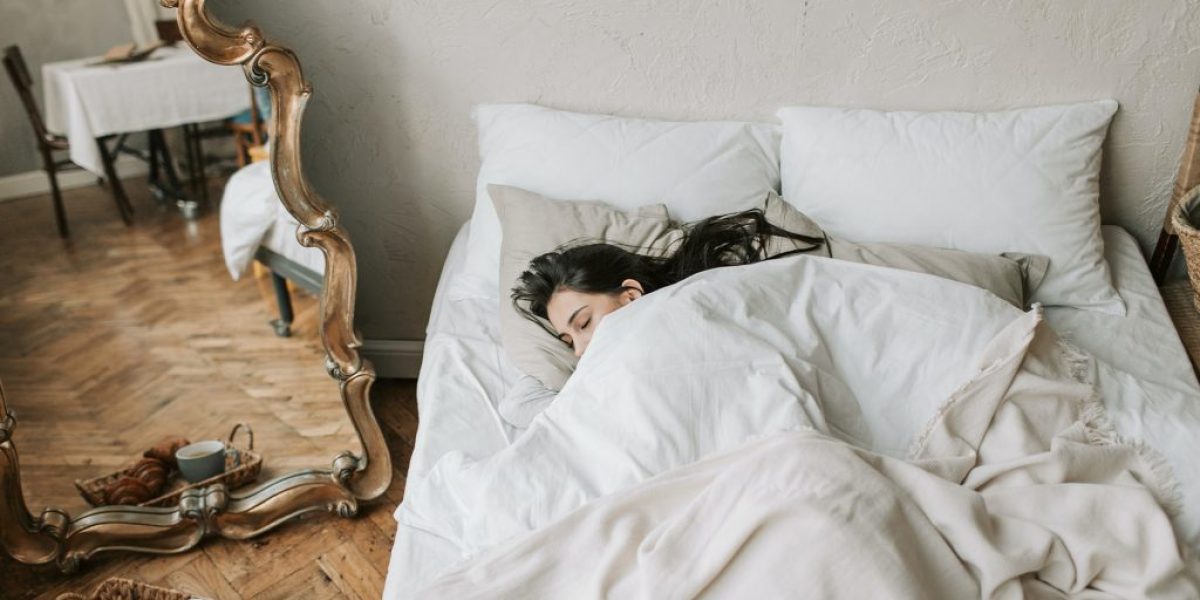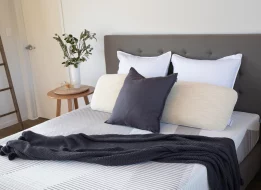Five Wellness Tips To Getting Better Sleep
When ‘YOLO’ became a thing back in the early 2010’s, one of the catchphrases of the movement, if you could call it that, was “sleep is for the weak“. Millennials, being the key players of the time, might have taken this a little too on board and have embraced the carpe diem-life a little too tightly, which in turn have left the generation unconsciously (or maybe, subconsciously) glorifying being busy. This mindset is something that needed to be changed and an upside to last year’s events, forcing people to press pause on our lives for months on end, have potentially done so on top of punctuating the value of rest and good health all around.
On that note, one of the often-neglected steps to achieving healthier wellbeing is getting enough sleep, as this plays an important role in your physical health. There are benefits aplenty to getting enough, such as maintaining a healthier weight, helping with metabolism, helping improve productivity and concentration, and it’s proven to improve immune function and mood, as well as lowers the risk for diseases like heart conditions and diabetes. To reap all of the above, and more, here are five wellness tips to help you get in the zone for some great sleeps:
1. Stick to a sleep schedule
Having a consistent and regular sleep-wake schedule is one way to help reset your internal body clock. It is best to always listen to your body – start getting ready for bed when you feel tired. If you typically set an alarm to wake up, set an alarm for winding down too just so you’re reminded it’s time to hit the sheets. And on the note of consistency, try ditching the weekend sleep-ins in the early stages of regulating your sleep cycle for better results. To make up for lost sleep, carve out some time for a midday nap. Trust us, this is heavenly!
2. Consume food and drinks wisely
Getting a good night’s sleep is always slightly harder with a full stomach, so be mindful of this. As a general rule of thumb, nutritionists recommend waiting about three hours between your last meal and bedtime. With that in mind, avoid over eating and drinking too much before jumping in bed. A wee life hack – make it a habit to brush your teeth as soon as you finish eating dinner. Having clean teeth makes it less tempting to reach for snacks late at night.
3. Engage in some form of exercise
One of the many benefits of exercising is that it helps improve sleep for many. A common misconception is that exercising close to bedtime would affect sleep quality, but studies show otherwise. How does it all add up exactly? Exercise helps relieve stress and anxiety, and it also tires you out, which ultimately helps in getting you in a good zone for a good sleep.
4. Stabilise your room’s temperature
Extreme conditions, inevitably, could make your sway to a good slumber a bit more challenging. If it’s too warm or too cold, make the necessary adjustments. Bundle up or turn the AC on… whichever suits the circumstance, do it for the sake of being comfy.
5. Keep it natural
If all of the above isn’t proving to be successful, consider some sleep aids – but keep it natural. Some options available are herbal teas, essential oils, melatonin, a lavender balm, or for a pampering moment, try having a warm sea salt bath before going to bed.









